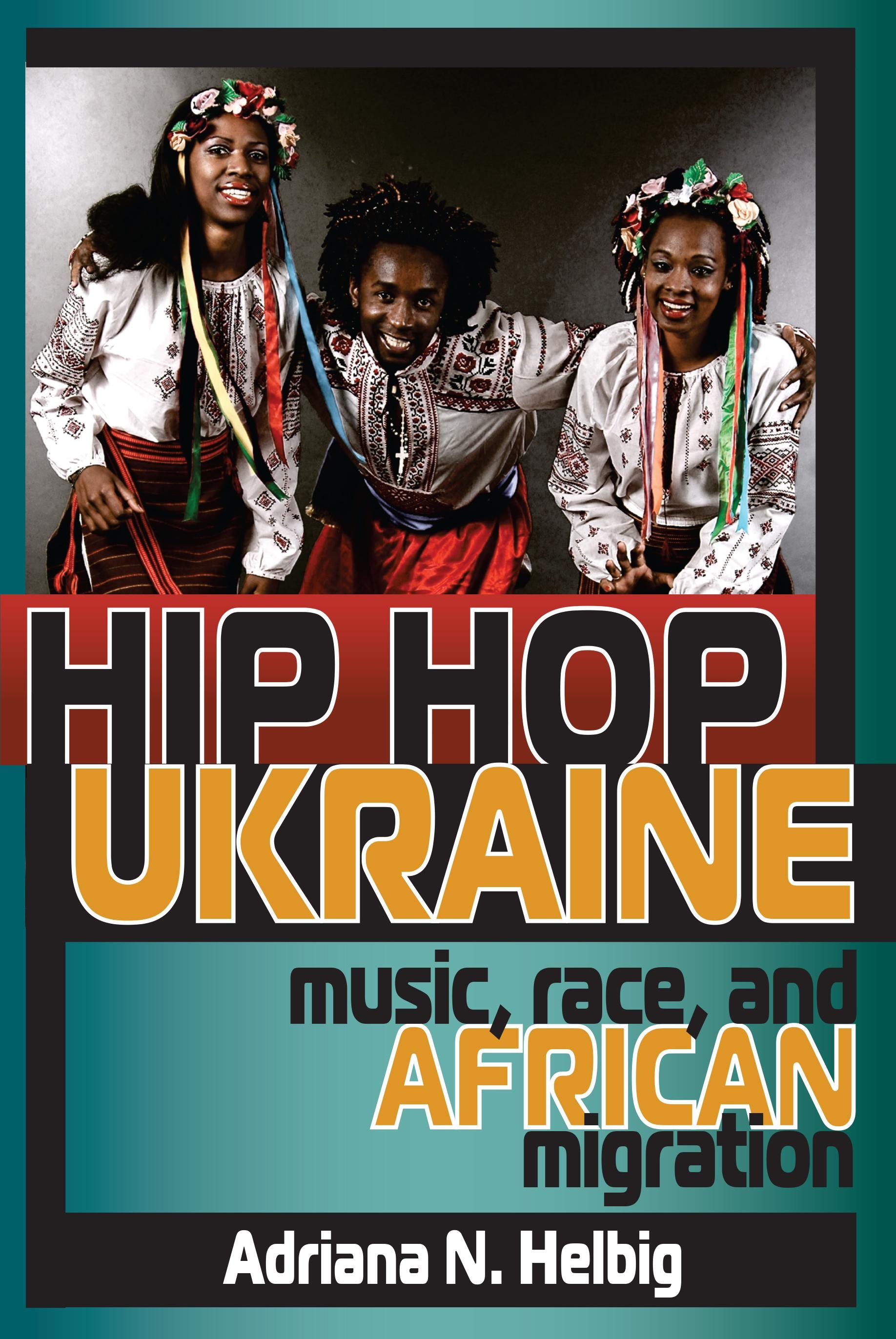Adriana N. Helbig: Hip-Hop Ukraine: Music, Race, and African Migration (2014)
Filed under book | Tags: · africa, african american culture, black people, blackness, ethnomusicology, gender, hip hop, identity, immigration, music, race, rap, soviet union, uganda, ukraine

“In Hip Hop Ukraine, we enter a world of urban music and dance competitions, hip hop parties, and recording studio culture to explore unique sites of interracial encounters among African students, African immigrants, and local populations in eastern Ukraine. Adriana N. Helbig combines ethnographic research with music, media, and policy analysis to examine how localized forms of hip hop create social and political spaces where an interracial youth culture can speak to issues of human rights and racial equality. She maps the complex trajectories of musical influence—African, Soviet, American—to show how hip hop has become a site of social protest in post-socialist society and a vehicle for social change.”
Publisher Indiana University Press, Bloomington, IN, 2014
ISBN 9780253012043, 025301204X
xix+233 pages
Interview with author: Amanda Jeanne Swain (New Books Network, 2014, podcast).
Reviews: Kevin C. Holt (Current Musicology, 2014), Michael C. Thornton (Slavonic and East European Review, 2015), Mark Alan Rhodes II (Social & Cultural Geography, 2015), Anna Oldfield (Popular Music and Society, 2015), Tony Mitchell (Slavic Review, 2016), Kendra Salois (Ethnomusicology, 2017).
Michael P. Jeffries: Thug Life: Race, Gender, and the Meaning of Hip-Hop (2011)
Filed under book | Tags: · gender, hip hop, music, music criticism, race, rap

Hip-hop has come a long way from its origins in the Bronx in the 1970s, when rapping and DJing were just part of a lively, decidedly local scene that also venerated b-boying and graffiti. Now hip-hop is a global phenomenon and, in the United States, a massively successful corporate enterprise predominantly controlled and consumed by whites while the most prominent performers are black. How does this shift in racial dynamics affect our understanding of contemporary hip-hop, especially when the music perpetuates stereotypes of black men? Do black listeners interpret hip-hop differently from white fans?
These questions have dogged hip-hop for decades, but unlike most pundits, Michael P. Jeffries finds answers by interviewing everyday people. Instead of turning to performers or media critics, Thug Life focuses on the music’s fans—young men, both black and white—and the resulting account avoids romanticism, offering an unbiased examination of how hip-hop works in people’s daily lives. As Jeffries weaves the fans’ voices together with his own sophisticated analysis, we are able to understand hip-hop as a tool listeners use to make sense of themselves and society as well as a rich, self-contained world containing politics and pleasure, virtue and vice.
Publisher University of Chicago Press, 2011
ISBN 0226395855, 9780226395852
280 pages

